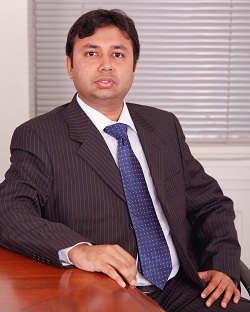 Describe your investment approach and how it has evolved over time?
Describe your investment approach and how it has evolved over time?
Our investment approach is based on a fundamental approach to investing with quality and growth as its key drivers. Over time, emphasis on quality is increasing and an argument for growth at relative value (GARV) is gaining over growth at reasonable price (GARP). It’s natural that quality does not come cheap. Hence, valuations should be looked at relatively with a different perspective. For example, valuation of a quality stock should be relative to the valuation of the sector (and not the Nifty) and also relative to the premium / discount to Nifty which it has traded empirically rather than the Nifty itself. This comparative and relative valuation differentiates long term winners from value-traps.
What has contributed to consistent outperformance of DWS Alpha fund? How do you plan to sustain the performance in future?
We have focused on achieving superior risk adjusted returns with lower volatility and deviations. Apart from that, our allocation led to one third of out-performance and our individual bottom up stock selection contributed to two-thirds of the out-performance. From an allocation perspective, we were defensive in markets in 2013 and became bullish since early 2014. From a selection perspective, we like quality companies with good corporate governance practices and investing in these has been a key feature of our portfolio. Going forward, we stick to our core investment philosophy with emphasis on superior and consistent risk adjusted returns for investors.
Do you think the markets have the potential to deliver the kind of performance which we saw in 2014? What are the key risks to market currently?
Performance in 2014 was robust after many years of consolidation. We saw political stability, ongoing reforms, GDP growth picking up, fiscal and current account deficit improving, inflation reducing, rates falling, rupee stabilizing and inflows continuing from foreign institutional investors. Valuations were cheap and this led to a rally in the markets. Expectations on returns need to be moderated going forward as part of it has been factored in current valuations which are now fair. We remain positive on Indian macro and in the medium to long term; Indian equity markets could deliver double digit returns to investors. Key risks to our market are global risk aversion with Fed rate hike and rise in oil prices.
What cues are you closely watching at this juncture?
Key global cues include start of US Fed Rate hike, oil and commodity prices and global liquidity flows. In domestic cues, focus will be on earnings growth, inflation and rate cuts, recovery in growth and industrial production, progress of monsoon and legislative reforms.
Which sectors do you think will play out well in the next three to five years?
Sector preferences might change with changing fundamentals and valuations. However, from a three to five year perspective, we are positive on private financials, automobiles, consumer discretionary and selective industrials.
Many fund managers are bullish on mid and small cap stocks. With mid and small cap stocks having rallied 72% and 83% respectively over the last one year; do you think theres still some steam left in these sectors?
Valuations of mid and small cap companies have seen a re-rating and are no longer cheap. However, we think that mid caps and small caps can still deliver returns to investors from a three to five year perspective, although not without volatility. Return dispersion in mid and small caps is usually high and key is bottom up stock selection.
From a fund management perspective, what are the challenges in managing a close end small/mid cap fund vis-à-vis an open end small/mid cap fund?
The challenges in managing a closed end mid / small cap fund are largely similar to comparative open ended funds, except that portfolio positioning should recognize possibility of any event risk near to completion of the tenure of the fund.
Some of the closed end funds launched in 2007 did not live up to their expectations. Do you think the situation is different now? If so, why?
We are positive on Indian macro fundamentals and do not see valuations as expensive unlike in 2007. If we see now, fundamentals of Indian economy remain strong with fiscal deficit, current account deficit and inflation in much better shape, lower crude prices, continuing monetary easing and pick-up in growth.
In your career as a fund manager, what have been your greatest learning?
The greatest learning has been to remain focused and disciplined. Sticking to one’s core conviction holds the key to being a good fund manager.




